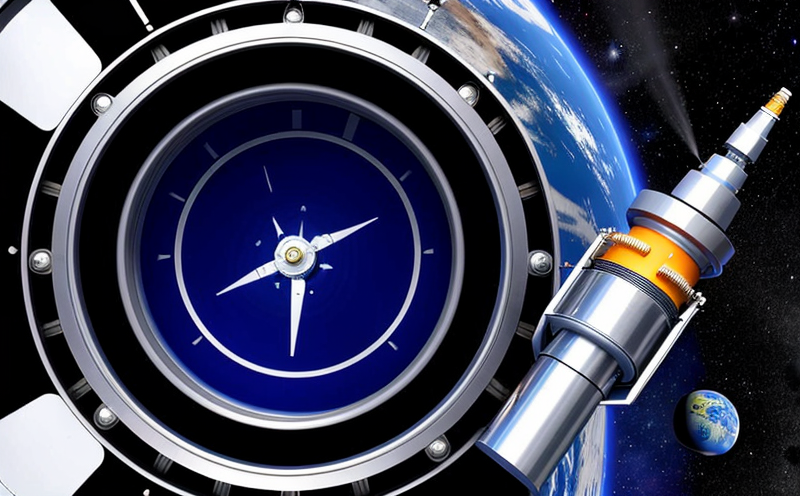Lubricant testing for space vehicles and components exposed to vacuum conditions
The Critical Role of Lubricant Testing for Space Vehicles and Components Exposed to Vacuum Conditions Ensuring Reliability in the Harsh Environment of Space
As the space industry continues to push boundaries and explore new frontiers, the need for reliable and efficient lubricants has never been more crucial. With spacecraft and their components exposed to extreme temperatures, radiation, and vacuum conditions, even the slightest compromise on lubricant performance can have catastrophic consequences. In this article, we will delve into the world of lubricant testing for space vehicles and components exposed to vacuum conditions, a laboratory service provided by Eurolab.
What is Lubricant Testing for Space Vehicles and Components Exposed to Vacuum Conditions?
Lubricant testing for space vehicles and components exposed to vacuum conditions involves evaluating the performance and effectiveness of lubricants under simulated space-like environments. This specialized testing ensures that lubricants can withstand the extreme conditions encountered in space, such as intense radiation, temperature fluctuations, and the absence of air. The primary goal is to guarantee that lubricants do not break down or degrade prematurely, which could compromise the reliability and safety of spacecraft.
The Importance of Lubricant Testing for Space Vehicles and Components Exposed to Vacuum Conditions
The consequences of inadequate lubricant testing can be severe
Component failure Inadequate lubrication can lead to premature wear and tear on critical components, resulting in costly repairs or even catastrophic failures.
Mission compromise A single component failure can jeopardize an entire mission, leading to significant financial losses and reputational damage.
Safety risks In the worst-case scenario, component failure can put human lives at risk.
Advantages of Lubricant Testing for Space Vehicles and Components Exposed to Vacuum Conditions
Eurolabs lubricant testing services offer numerous benefits
Enhanced Reliability By simulating space-like conditions, Eurolabs tests ensure that lubricants meet the highest standards of performance and reliability.
Increased Safety Our tests minimize the risk of component failure, ensuring a safer operational environment for spacecraft.
Cost Savings Identifying potential issues early on saves businesses time and resources by avoiding costly repairs or mission failures.
Improved Mission Success Rate By guaranteeing lubricant effectiveness, Eurolabs testing services contribute to increased success rates in space missions.
Compliance with Industry Standards Our tests adhere to industry standards, ensuring that our clients meet regulatory requirements.
Key Benefits of Lubricant Testing for Space Vehicles and Components Exposed to Vacuum Conditions
Here are the key benefits of using Eurolabs lubricant testing services
Accurate simulation of space-like conditions Our state-of-the-art facilities and expertise ensure accurate simulation of temperature, radiation, and vacuum conditions.
Comprehensive test portfolio We offer a range of tests tailored to specific space-related applications, including vibration, thermal cycling, and fluid compatibility.
Experienced team Our team consists of experts with extensive knowledge in lubricant testing for space applications.
QA Frequently Asked Questions about Lubricant Testing for Space Vehicles and Components Exposed to Vacuum Conditions
What types of spacecraft can benefit from Eurolabs lubricant testing services?
All types of spacecraft, including satellites, launch vehicles, and crewed missions, can benefit from our tests.
How do you simulate space-like conditions in your laboratory?
Our facilities feature advanced temperature control systems, radiation simulators, and vacuum chambers to accurately replicate space-like environments.
What lubricant types are commonly tested for space applications?
We test a wide range of lubricants, including greases, oils, and specialty fluids designed specifically for space-related applications.
Can Eurolabs tests be customized to meet specific industry standards or regulations?
Yes, we offer tailored testing services to ensure compliance with industry-specific standards and regulatory requirements.
Conclusion
In the unforgiving environment of space, even the slightest compromise on lubricant performance can have far-reaching consequences. Eurolabs lubricant testing services for space vehicles and components exposed to vacuum conditions provide a critical layer of protection against component failure, mission compromise, and safety risks. By partnering with Eurolab, businesses can ensure that their lubricants meet the highest standards of performance and reliability, ultimately contributing to increased success rates in space missions. Trust Eurolabs expertise to help you navigate the complex world of lubricant testing for space applications.
Stay ahead in the rapidly evolving space industry by choosing Eurolab as your trusted partner for lubricant testing services. Contact us today to learn more about our specialized laboratory services and how we can support your business needs.




